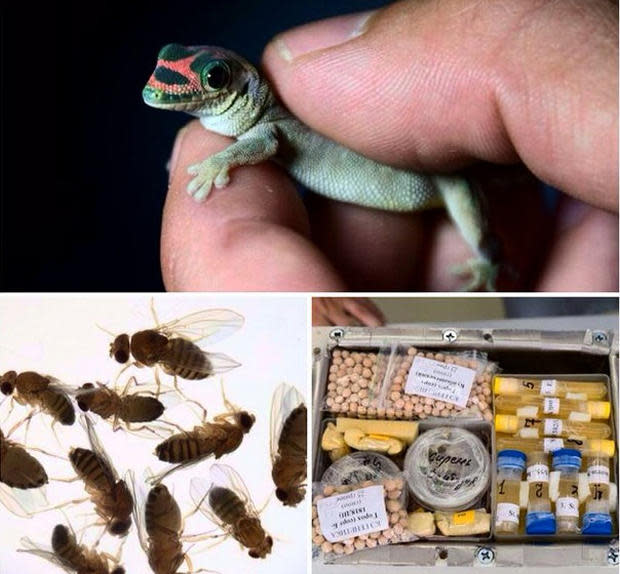Russian space-sex gecko experiment fails

The image from Roscosmos shows the experiments on the satellite. Roscosmos
Starting with fruit flies back in 1947, humankind has spent a lot of time and money blasting animals into space. More recently, Roscosmos, the Russian space agency, sent five geckos up into orbit in a Photon satellite to see how space would impact their sex lives. The capsule from the mission just returned to Earth, but the geckos failed to survive the trip.
Russian news agency ITAR-TASS quotes an official with the Institute of Biomedical Problems at the Russian Academy of Science saying, "Hypothermia is not the main possible cause but only one of the options. Others include a possible malfunction of the onboard equipment and life-support system." The same official says the geckos died a week ago based on the condition of the bodies.
Related stories
The satellite mission has been rocky. The agency lost contact with the satellite back in late July, though space officials say this hiccup wouldn't have caused the loss of life-support systems on board. It took a week for communications to be restored. The satellite was originally scheduled for a full 60-day mission, but came back after only 44 days.
The four female geckos and one male gecko weren't alone on the mission. They went up with a crew of fruit flies, which survived and bred in space. Other specimens onboard included silkworm eggs, mushrooms, and seeds.
A follow-up report from ITAR-TASS cites temperature as a factor in the geckos' deaths. Scientists have determined that low temperatures slowed the reptiles' metabolism until they were unable to digest food. The geckos join a sad history of animals in space that didn't make it back to Earth alive, a lineage which includes Laiki the space-dog, countless monkeys, and a cat launched by France in 1963.
(Via BBC News)

